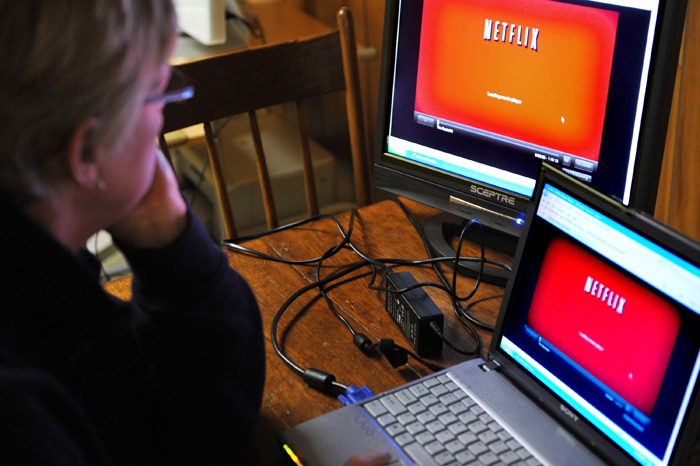Neutrality for all
Websites such as Netflix and YouTube could forever be altered by a new FCC ruling that gives preference to higher paying Internet providers.
January 27, 2014
Your account will be charged $0.79 for clicking ‘Play’ on this YouTube video.
Confused? Messages and fees like the hypothetical one above may become a real possibility for Internet users in the near future.
On Jan. 14, a federal appeals court struck down a Federal Communications Commission ruling meant to prevent an Internet service provider from prioritizing some website traffic over others, according to an article by CNN.
The ruling is the latest development in the long-running battle over net neutrality. Net neutrality refers to the ideas that led to a set of rules the FCC approved in 2010.
The ‘Open Internet’ is basically the Internet as we now know it. The ‘Open Internet’ rules implemented by the FCC prevent Internet service providers from blocking or discriminating against any legal website or other online content, according to the official FCC website.
These rules should be strictly upheld seeing that in 2014, Internet access has become a human right. Denying access or giving preferential treatment to one user and not another violates that right.
Unfortunately, a federal appeals court ruled that the FCC does not have the right to enforce those rules anymore.
A surprising number of people remain unaware of this ruling or the implications it holds for their future Internet activity – something that has become a central aspect for functioning in our day-to-day lives.
So what does this new ruling mean for us? Everybody who accesses the Internet does so through an Internet service provider. Now providers could choose which websites we can or cannot access and at what price.
Big companies like Verizon, who sued the FCC over the rules, would be able to pick and choose who gets the best access, according to an article by The Washington Post. They could begin charging huge fees for websites to get in the ‘fast lane.’ Those fees presumably would be a small inconvenience for successful moneymaking websites, but could mean the end for less popular websites.
This could result in two different Internets: a speedy and smooth connection for major websites and a slow and faulty track for everybody else. The providers would also have the authority to deliberately play favorites.
This means Verizon could essentially make traffic quicker on the websites of smartphone companies that use its mobile service and slower on the sites of phone makers who do not. Company officials are not saying they will do this, but they could.
Not only could your provider dictate your access to various websites, but it also could cost you money. If providers start charging a premium to websites for services, those sites will likely pass the cost on to their customers.
If you still think this will not affect your life, try to imagine life as a college student without Netflix. Netflix is currently one of the Internet’s biggest bandwidth hogs due to its movie streaming services, according to the same article by CNN.
With this new ruling, providers are likely to charge more to sites like Netflix that use so much data. If their cost of doing business increases, Netflix will likely increase its fees for customers. That means poor college students will have to dole out more money each month in order to enjoy Netflix’s services.
Even services that are currently free, like Google-owned YouTube, could adopt additional pay models to make up the difference. That will come out of your own pocket.
While most of these hypothetical situations remain just that – hypothetical – they are real concerns that our technologically-dependent society should have a serious discussion about.
The ruling could ultimately terminate the free and uncensored Internet that we have come to rely on. The FCC should appeal the ruling at the Supreme Court before corporations take control of yet another aspect of our lives.
– Ashley Lynn Fisher is a junior English major from Gig Harbor. She can be contacted at 335-2290 or by [email protected]. The opinions expressed in this column are not necessarily those of the staff of The Daily Evergreen or those of Student Publications.









